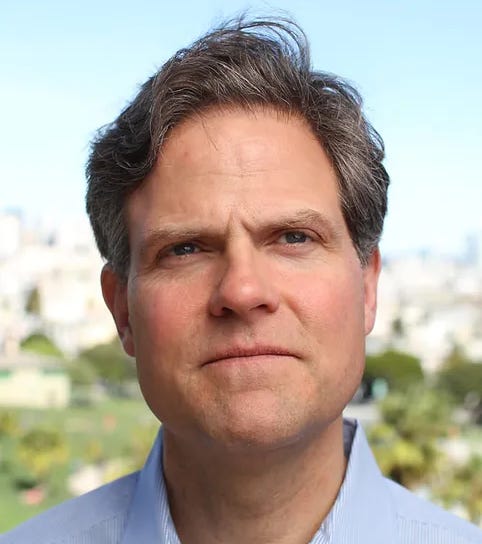'To What Service is My Soul Committed?'
Marcus Aurelius' introspective question is a touchstone
American Commonwealth is a reader-supported publication. If you read, please consider supporting ($50/year):
Most mornings I wake up at near 5 a.m., and, after putting on coffee, I carry out my daily ablutions while listening to the latest news and opinions on one of my devices.
Lately, however, I have kept technology off for the first 30 minutes.
I am instead reflecting on a question posed by Marcus Aurelius in the 2nd century A.D.: “To What Service is My Soul Committed?”
Marcus Aurelius posed the question “To What Service is My Soul Committed?” in his journal in the 2nd century A.D. His journals, published as “The Meditations,” are now considered to be a cornerstone of stoic philosophical wisdom.
My Two Sons
Always, swiftly, the first answer to the question is, “My two sons.”
They are 17 and 21 years-old, and, like others their age, they are self-confident, eager, and green. What they need most from me and the other adults in their lives is loving support and emotional space to navigate healthy separation-individuation.
After that, for their own sakes—and for the good of our democracy—our children need us to transmit to them what Judge Learned Hand famously called the “spirit of liberty” in 1944.
I have written about it before in reference to my father.
The spirit of liberty is a deep emotional attachment to the Constitution, freedom, justice, equality, compassion, fellow feeling, the rule of law, and, not least, the peace of the nation.
Judge Hand gave a speech on liberty and democracy in Manhattan’s Central Park in the summer of 1944, shortly before the liberation of Paris. In attendance were some a hundred and fifty thousand newly naturalized citizens gathered to recite an oath to the United States.
The judge said the spirit of liberty was a matter of faith, courage, conscience, and effort, concluding with the words, “In that spirit of liberty and of America I ask you to rise and with me pledge our faith in the glorious destiny of our beloved country.”
What children and young adults need most is loving support and emotional space to navigate separation-individuation
Bringing the Force of History to Healing our Democracy
To what service is my soul committed?
My reflections on this question also lead me to the wondrous pages of:
Tacitus’ Histories
Trenchard and Gordon’s Cato’s Letters
John Locke’s Second Treatise of Government
Algernon Sydney’s Discourses Concerning Government
The Federalist Papers
And, most insightful of all, A Testament of Hope, consummate collection of MLK’s speeches and writings
How did we get into this dangerous mess? And, how do we get out of it?
These two questions are front of mind for me. I carry them inscribed on a notecard in my back pocket in order to remind myself that I have a role to play in healing our besieged, suffering republic.
How did we get into this dangerous mess? And, how do we get out?
The answer to both questions is history. We must study history first to comprehend what has gone so wrong and, then, what to do to recover—or, perhaps, to build anew.
The spirit of liberty is a deep emotional attachment to freedom, justice, equality, and the Constitution.
Family, Friends, and Community
The well-being of my children is No. 1 on the list of callings to which my soul is committed. But there’s also Andrea, family, friends, and community. Last night I was fortunate enough to gather with a community of nine over dinner in San Francisco to celebrate my 58th birthday.
My community also includes old friends from high school, college, divinity school, and medical school—and also the new community of you, the kind people who read my Substack.
I am dedicated to a far-reaching exploration of how we got here and how we get out. I will use my history books, my brain, my heart, and my pen in the pursuit.
But I do need to thank you because without you I am not sure if I would be on this journey of learning—and hopeful reform—in the first place.
Marcus Aurelius poses a central question: “To What Service is My Soul Committed?”
Eli Merritt is a psychiatrist and historian who writes about the origins of our present political discontents and solutions to them. He has written for the New York Times, Washington Post, Los Angeles Times, and Chicago Tribune, among other publications.
He writes American Commonwealth and is the author or editor of the books “Disunion Among Ourselves: The Perilous Politics of the American Revolution,” “Demagogue in the White House: Lessons Learned from the Presidency of Donald J. Trump,” and “How to Save Democracy: Advice and Inspiration from 95 World Leaders”
More articles by Eli Merritt
Books
The Curse of Demagogues: Lessons Learned from the Presidency of Donald J. Trump
Disunion Among Ourselves: The Perilous Politics of the American Revolution
To aid the educational efforts of American Commonwealth, take the next step:
Gift a subscription to a friend or family member
Share, Like, Comment, or Restack below:





I teach Civics and History to immigrants preparing for their Citizenship interview. I ask them to read the Preamble to the US Constitution at home and to look up the meaning of what words they do not understand. I add that this is what those who are elected to the Presidency have to take an oath to protect and defend, i.e. The US Constitution. I found the words to it so stirring, once again, as when I first read them as a kid and no matter how many times I read them over the years. It is my hope that the same effect occurs to my students.